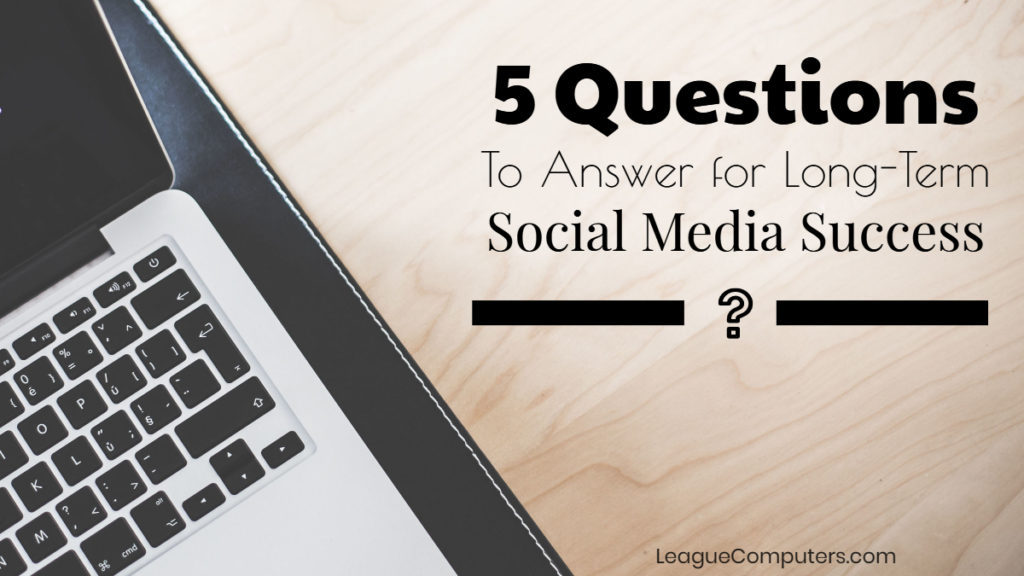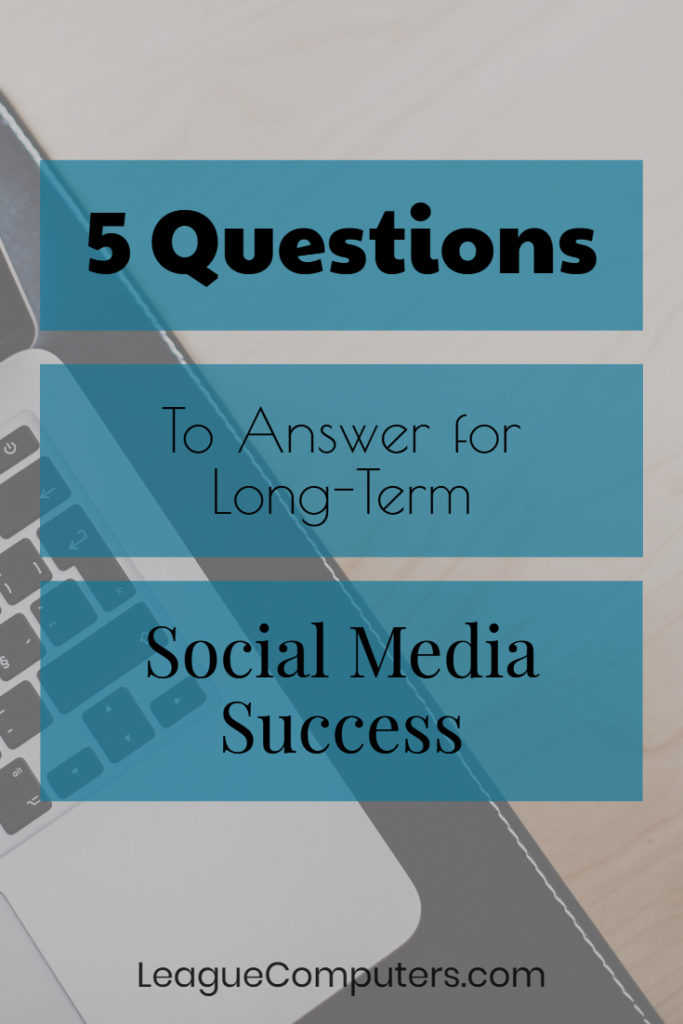
Social media marketing is a long-term commitment for small business owners. It only takes a few minutes to set up a profile on any social media network, but maintaining a consistent presence over months (and years) on each site requires a major investment of your time.
You may have a lot to post initially on each social site, but what happens 6 months from now? Are you prepared to manage the accounts you create? You need to think long-term when planning a social media strategy.
Here are 5 questions to answer that will help with long-term social media success for your business:
#1: What is the purpose of your social media presence?
With so many different social networks available (and new ones popping up all the time), most small business owners simply do not have enough time in the day to be everywhere. Unless you decide to hire staff or outsource some of your social media management.
So you need to have specific goals and a definite purpose for the accounts you do create. Your day-to-day goals and the scope of the social media accounts you maintain may change over time, but the more concrete your long-term goals are now, the better your chance of success.
#2: Who are you trying to connect and build relationships with on social media?
Once you’ve defined your ideal client (make this description as specific as possible), then find out where your target audience is being social. What social media networks do they spend time on?
Do some market research on the social media network(s) or simply ask your current clients.
Make the best use of your time on social media and focus on the network(s) that attract your target audience: if your target audience spends the majority of their time on Pinterest, then focus your time and resources on creating content that is ideal for that platform. Learn more about the Pinterest platform (in this example), and keep up with the platform’s updates and new features.
#3: What would make your audience like or engage with content on your profile?
The answer is probably not pushy sales copy! Yes, promotional posts are fine on occasion, but put yourself in your customer’s place: what makes you follow a brand or like / engage with their content?
People are usually more receptive to content that is helpful, educational, inspirational, humorous, or that clearly offers something they want or need (which includes coupons, discounts, free downloads, etc.)
Create a master content calendar, which can outline the whole year or the next 6 months. Or maybe, for your business, it works well to create quarterly content calendars with major goals and themes and then make more detailed monthly/weekly content calendars.
Find a calendar system that works well for you and then determine how to include occasional promotional content with your non-promotional content.
#4: What problem does your business solve?
If you are having a hard time thinking of what new content you can share 6 months from now, try this: make a list of 10 problems your business solves (or 10 questions you get asked over and over again from clients or prospects).
Take that list of problems your customers have and write the solution for each. Now you can create content that focuses on those problems and solutions.
For each of these Top 10 problems and solutions, you can make a blog post or video with a long-form, detailed answer.
Then from each of those Top 10 blog posts or videos, create 2 shorter tips that you’ll share in social media posts. Now you have 10 long-form pieces of content (blog posts and/or videos), plus 20 short-form pieces of content (the tips).
With the fluid state of social media where you will always have new users viewing your profiles, you can post your Top 10 content more than once.
#5: What is your communication plan (and response time)?
Things move fast in social media, and most consumers expect a fairly quick response time from businesses. So again, you need to think long-term when setting up accounts on social media platforms:
- Do you have a customer service plan or guide for your business?
- Who will monitor and manage your social media accounts?
- What is your plan for handling negative social media comments or posts?
Keep in mind that typical (and expected) response times may be different on each social media network. For example, since Twitter moves faster in real-time, you probably need to respond to Tweets within a matter of hours and not days. (And on Twitter, sometimes responding within minutes is the best strategy.)
You may want to state your customer service policy on your social media accounts: Facebook has several fields on your Page where you can outline your policy for returning messages. Take a look at each of your social media accounts and determine if there are fields you can optimize for customer service.
Conclusion
It is important to think long-term when planning social media content and strategy because honestly, just sticking with it can make your small business stand out from the competition.
So use the 5 questions above to create a long-term plan, and then take the necessary steps to ensure that your profiles are generating engagement (and ultimately more traffic to your website/business) long after other business owners have lost their initial enthusiasm.
Need some help creating your long-term social media strategy?
We offer a free consultation to learn more about the services we offer and how they can assist your digital marketing.
Click Here to contact us now!
5 Questions to Answer for Long-Term Social Media Success

Top photo credit(derived from): mario.hieber via photopin cc
